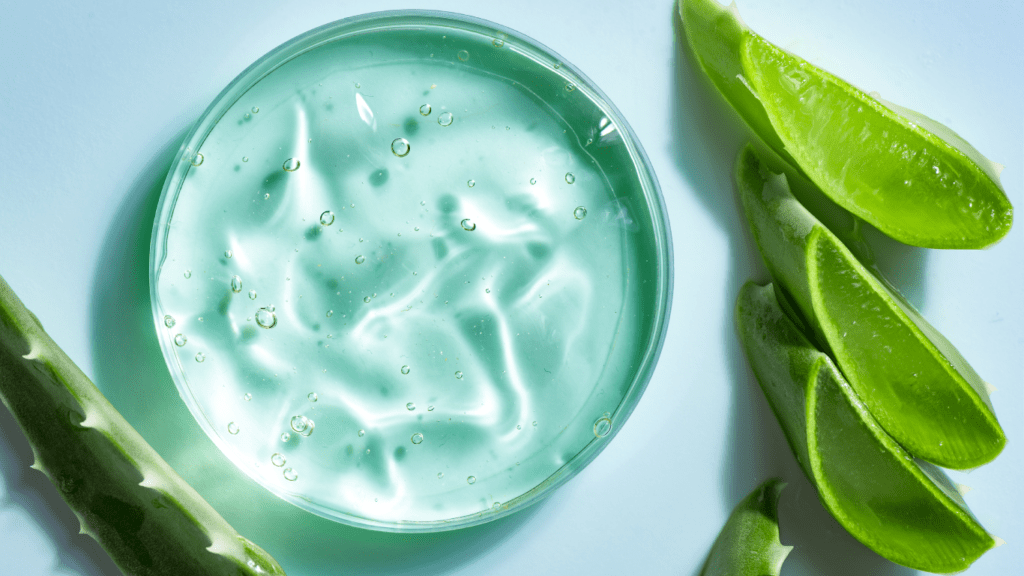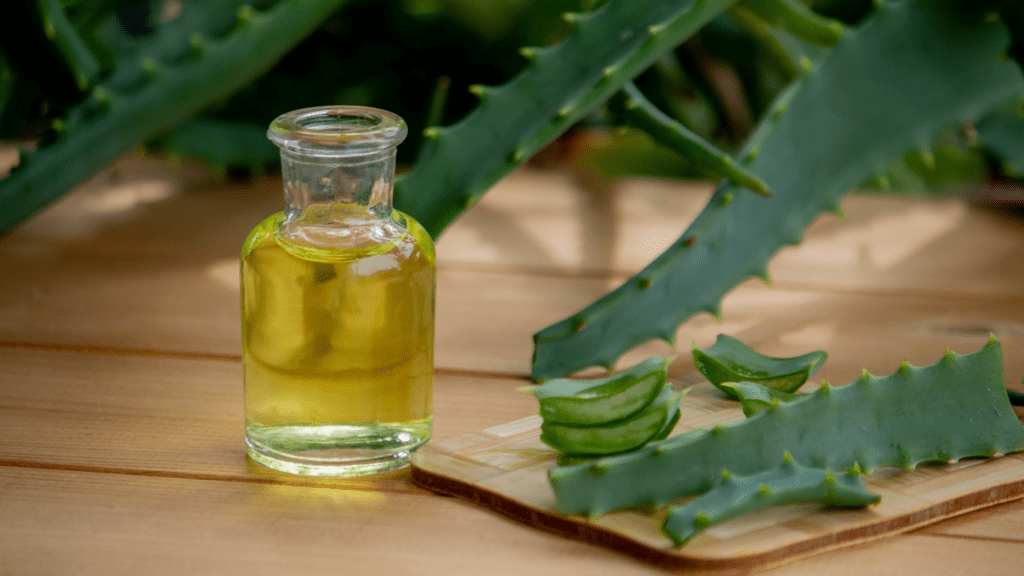Embarking on a journey towards natural skincare can be both exciting and overwhelming. As I delve into the realm of natural ingredients and holistic approaches, I’ve uncovered a treasure trove of tips and tricks that I’m eager to share. From the soothing properties of aloe vera to the rejuvenating effects of rosehip oil, the world of natural skincare is a vast and fascinating one.
In this comprehensive guide, I’ll walk you through the essentials of crafting a personalized natural skincare routine that caters to your unique needs. Together, we’ll explore the benefits of plant-based ingredients, delve into the art of DIY skincare recipes, and debunk common myths surrounding natural beauty. Get ready to embrace a radiant complexion the natural way.
Exploring the Benefits of Natural Skincare
Delving into the realm of natural skincare brings forth a myriad of benefits that go beyond surface-level beauty. Natural skincare ingredients, such as aloe vera and rosehip oil, offer a host of advantages for the skin and overall well-being. Embracing natural skincare not only nurtures the skin but also promotes sustainability and eco-friendliness in personal care routines.
Incorporating natural ingredients like aloe vera, known for its soothing and moisturizing properties, can help calm irritated skin and reduce inflammation. This plant-based remedy is rich in vitamins and antioxidants, making it a powerhouse for revitalizing the skin and combating signs of aging.
Rosehip oil, another natural gem, is packed with essential fatty acids and vitamins that aid in hydrating and improving skin texture. Its ability to fade scars and hyperpigmentation makes it a sought-after ingredient for achieving a radiant complexion naturally.
Beyond the tangible benefits for the skin, natural skincare promotes environmental consciousness by favoring sustainable practices and reducing the use of synthetic chemicals that harm ecosystems. By opting for plant-based ingredients and eco-friendly packaging, individuals contribute to a greener approach to personal care while nourishing their skin with wholesome, nature-derived elements.
- Nurtures the skin with soothing and moisturizing properties of aloe vera.
- Combats signs of aging through antioxidant-rich natural ingredients.
- Improves skin texture and fades scars with the hydrating benefits of rosehip oil.
- Promotes sustainability and eco-friendliness in personal care routines.
- Contributes to a greener approach to skincare by favoring plant-based ingredients and eco-friendly packaging.
Understanding Ingredients in Natural Skincare Products
When it comes to natural skincare, understanding the ingredients is essential for making informed choices about the products we use on our skin. Here, I’ll delve into common ingredients for healthy skin and highlight what to avoid in natural skincare.
Common Ingredients for Healthy Skin
- Aloe Vera: Known for its hydrating and soothing properties, aloe vera is a staple in natural skincare products. It helps calm irritated skin, reduce inflammation, and promote healing, making it ideal for sensitive skin types.
- Coconut Oil: With its moisturizing and anti-inflammatory properties, coconut oil is a popular ingredient in natural skincare. It helps nourish the skin, lock in moisture, and improve skin barrier function.
- Hyaluronic Acid: This powerhouse ingredient is excellent for hydrating the skin and reducing the appearance of fine lines and wrinkles. It’s a humectant that attracts moisture to the skin, keeping it plump and youthful.
- Green Tea Extract: Rich in antioxidants, green tea extract helps protect the skin from environmental damage, soothe inflammation, and promote overall skin health. It’s a versatile ingredient suitable for various skin types.
- Parabens: These preservatives are often found in skincare products but are best avoided due to potential hormone-disrupting effects. Opt for paraben-free products to reduce the risk of adverse reactions.
- Sulfates: Commonly used in cleansers and body washes for their foaming properties, sulfates can strip the skin of its natural oils and cause dryness and irritation. Look for sulfate-free alternatives for gentler cleansing.
- Synthetic Fragrances: Artificial fragrances can contain allergens and irritants that may trigger skin reactions. Choose products with natural scents from essential oils or fragrance-free options to minimize the risk of sensitivity.
- Phthalates: These chemicals are often used to improve product texture but have been linked to potential health concerns. Opt for phthalate-free skincare products to avoid unnecessary exposure.
By being mindful of the ingredients in natural skincare products and avoiding harmful substances, we can nourish our skin with beneficial elements that support its health and wellbeing.
Creating a Personalized Skincare Routine
Understanding the importance of creating a personalized skincare routine is key to maintaining healthy and glowing skin. Incorporating natural skincare products into your regimen can enhance the overall health and appearance of your skin. Here’s how you can tailor a skincare routine that suits your skin’s specific needs and concerns:
- Identify Your Skin Type: Take note of whether you have oily, dry, combination, or sensitive skin. This knowledge will help you choose the right products that cater to your skin’s unique requirements.
- Research Ingredients: Familiarize yourself with beneficial ingredients like aloe vera, coconut oil, hyaluronic acid, and green tea extract. These natural components can address various skin issues and promote skin health.
- Avoid Harmful Ingredients: Be wary of harmful additives such as parabens, sulfates, synthetic fragrances, and phthalates. Opt for clean, natural skincare products free from these potentially damaging substances.
- Consult a Skincare Professional: If you’re unsure about which products to use or how to structure your skincare routine, consider seeking advice from a dermatologist or skincare specialist.
- Test Products Before Committing: To prevent adverse reactions, test new skincare products on a small patch of skin before applying them to your face. This step can help you determine if the product is suitable for your skin type.
- Follow a Consistent Routine: Establish a daily skincare routine that includes cleansing, toning, moisturizing, and applying sunscreen. Consistency is key to seeing results and maintaining skin health.
By personalizing your skincare routine with natural products tailored to your skin’s needs, you can nurture your skin effectively and achieve a radiant complexion. Remember, informed choices and consistency are essential for healthy, glowing skin.
Debunking Myths about Natural Skincare
As someone deeply immersed in the realm of natural skincare, I’ve encountered numerous myths that often cloud people’s understanding of this holistic approach to skincare. Let’s unravel some of these misconceptions to shed light on the truth behind natural skincare practices.
- Myth: Natural Skincare Products Are Ineffective
It’s a common misconception that natural skincare products lack potency compared to their synthetic counterparts. In reality, natural ingredients can be highly effective in nourishing and rejuvenating the skin. Ingredients like aloe vera, coconut oil, and green tea extract have been scientifically proven to offer numerous benefits, from hydration to anti-aging properties. - Myth: Natural Skincare Is Only for Sensitive Skin
While natural skincare is indeed gentle and suitable for sensitive skin types, it’s essential to recognize that it can benefit all skin types. Whether you have oily, dry, combination, or acne-prone skin, there are natural ingredients that can address your specific concerns without causing irritation or adverse reactions. - Myth: Natural Skincare Is Expensive
Contrary to popular belief, natural skincare doesn’t always come with a hefty price tag. With a growing interest in clean beauty and sustainable practices, many affordable natural skincare brands offer high-quality products at accessible prices. By prioritizing ingredients sourced from nature, these brands make natural skincare accessible to a wider audience. - Myth: Natural Skincare Doesn’t Require Preservatives
Preservatives are essential to maintain the integrity and safety of skincare products, whether natural or synthetic. While natural preservatives like essential oils and vitamin E are preferred in natural skincare formulations, their presence is crucial to prevent bacterial growth and ensure product longevity. It’s a misconception to believe that natural products can thrive without preservatives. - Myth: Natural Skincare Yields Instant Results
Patience is key when transitioning to natural skincare. While some synthetic products may deliver quick fixes, natural skincare focuses on long-term skin health and sustainability. Results from natural skincare products may take time to manifest, but the benefits of using clean ingredients go beyond surface-level improvements, contributing to overall skin well-being.
By dispelling these myths and staying informed about the true essence of natural skincare, you can make educated decisions about your skincare routine and embrace the beauty of nature’s gifts for radiant, healthy skin.




 Gracenie Stamperon
is a dedicated wellness enthusiast and content creator for My Healthy Living and Strategies, a platform focused on promoting holistic health, balanced living, and personal well-being. Gracenie’s passion for healthy living stems from her lifelong interest in nutrition, fitness, and mindfulness. With a background in health education, she brings a wealth of knowledge and practical strategies to help individuals achieve their wellness goals.
Gracenie Stamperon
is a dedicated wellness enthusiast and content creator for My Healthy Living and Strategies, a platform focused on promoting holistic health, balanced living, and personal well-being. Gracenie’s passion for healthy living stems from her lifelong interest in nutrition, fitness, and mindfulness. With a background in health education, she brings a wealth of knowledge and practical strategies to help individuals achieve their wellness goals.